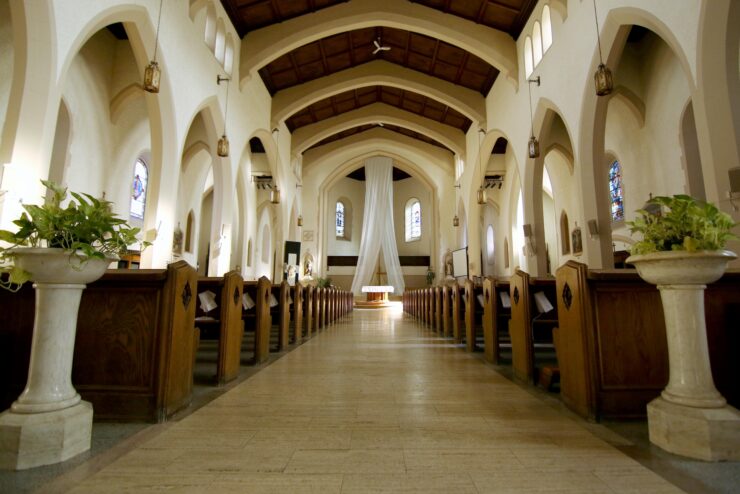Report estimates thousands of children sexually abused in Pennsylvania over past 70 years
“I was sick to my stomach.”
“I had tears in my eyes.”
“It is devastating.”
“It is such a perversion.”
These are the responses received when students at the University of Ottawa who identify as Catholic were asked how they feel about the recent news of widespread sexual abuse in the Catholic Church.
The church made headlines at the end of August of this year when a Pennsylvania grand jury released a report stating that more than 1,000 children had been abused by clergy in the state over the past 70 years. The jury estimates the exact total could be thousands more.
A history of abuse
Sexual abuse in the church is not a new phenomenon.
In the 1980s, molestations by Catholic priests began to receive significant media attention in both the United States and Canada. Come the 1990s, reports in Argentina, Australia, and Ireland showed rampant abuse, quickly growing into a major issue plaguing the church.
Criticism intensified when a series of articles published by the Boston Globe in 2002 revealed that many officials knew what was taking place and proceeded to cover it up, recounted in the popular 2015 film Spotlight, which took home an Academy Award for best picture in 2016. This culture of cover-ups may explain why many stories are just coming to light now.
Pope Francis responded to the news out of Pennsylvania by releasing a letter last month addressing these concerns.
“With shame and repentance, we acknowledge as an ecclesial community that we were not where we should have been, that we did not act in a timely manner, realizing the magnitude and the gravity of the damage done to so many lives,” he wrote. “If, in the past, the response was one of omission, today we want solidarity, in the deepest and most challenging sense, to become our way of forging present and future history.”
But U of O religious studies professor Emma Anderson said people are growing tired of apologies and broken promises for change.
People “want more action,” she said. “If Pope Francis is serious about cleaning up the scandal of sexual abuse, he needs to start moving more quickly and more decisively.”
Furthering controversy, Carlo Maria Viganò, former apostolic nuncio—an ambassador-like position—to the United States, published a letter that called on Pope Francis and several others to resign for allegedly “covering up abuses.” Specifically, Viganò claimed that sexual misconduct allegations against former archbishop of Washington, Theodore McCarrick, were known in the highest levels of the Vatican.
Anderson said that if Vigano’s account is true, she thinks that Pope Francis should resign.
Catholic U of O students struggle to digest news
The Fulcrum sat down with three Catholic students at U of O to get a glimpse into how young Catholics are dealing with the revelations of widespread sexual abuse, which may have been known to the heads of the institution.
Third-year political science and history student Anastasia Cherygova is a recent convert to the Catholic faith. For her, the incidents that occurred in the United States are particularly concerning.
“We’ve discovered that essentially the highest leadership of the church may have been involved in the cover up,” she said.
Pope Francis’ response to Vigano’s letter was that the letter “speaks for itself,” declining to comment further.
“I am greatly disappointed that (the Pope) did not choose to speak (about Vigano’s letter) as much as he did,” said third-year political science and history student Nolan Toscano, a devout Catholic and the former student president of Catholic Christian Outreach (CCO) at the U of O.
However, according to Toscano, the news does have a positive aspect to it.
“The Church is being purified … there is hope,” Toscano said. “As damning as these reports are, it shows that we are on our way towards justice.”
However, Anderson disagrees.
Abuse within the church “has been going on for so long,” Anderson said. “It’s like waves hitting a cliff and at some point the cliff gives way. You can’t have people talking about a loving God-man who came to earth to sacrifice himself for others while you’re allowing supposed moral authorities to prey on the most vulnerable; it’s the Gospel in reverse.”
Coming to terms and looking ahead
Toscano agrees with Anderson that the abuses are horrible, but said that they do not necessarily undermine the religion itself.
“This affirms that there are evil people out there and that people make decisions that go against God and against the moral law,” Toscano said. “But does that mean that God doesn’t exist? No, not at all. (People) shouldn’t have their faith predicated on priests, bishops, even the Pope. The Church is predicated upon Christ, Christ founded the Church. I can’t turn away.”
Toscano said that hearing the victims’ stories is deeply troubling for him, especially since he was working at a Catholic camp this summer.
“I cannot think of something that is worse than to defile people that are so innocent,” he said.
Cherygova echoed Toscano’s message.
“There is to a certain extent the same amount of evil happening in other areas of the world, in many religions and in many other institutions,” she said.
Cherygova isn’t making excuses for the abuse, though.
She said she recognizes that there is more that the church can do to prevent future abuses and to expose and prosecute those responsible when these actions come to light.
“We need to make sure that we stay accountable and that we exercise both faith and reason in these situations,” Cherygova said.”We can’t be afraid of short-term consequences in order to cleanse ourselves.”
Third-year U of O international development student D’Arcy Murphy, a Catholic who famously toured Canada with the relic arm of St. Francis Xavier in January, said that he wants to be part of the solution.
Murphy provided examples of what this should look like.
“The first steps are to listen to the concerns of people who are upset with church, to listen to the victims,” he said. We need “to pray for healing and for reconciliation, and to continue to live out the Gospel which is having hope that all things are made new by Jesus.”
Like Toscano, Murphy has hope.
“Ultimately, the Catholic Church is still the one founded by Jesus Christ and it will never truly lose its identity in proclaiming God’s love.”
Kevin Geenen is a member of the Catholic Christian Outreach at the U of O.





